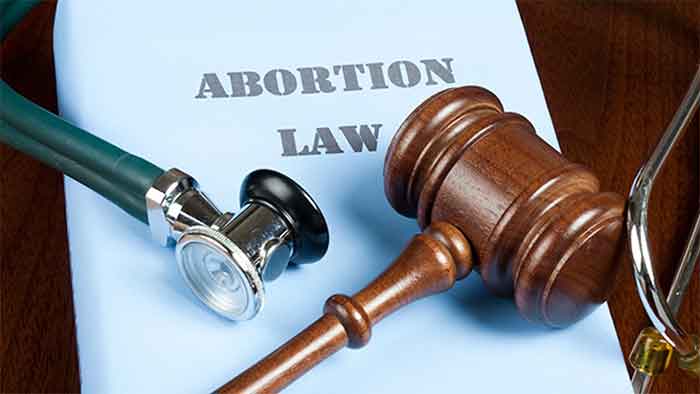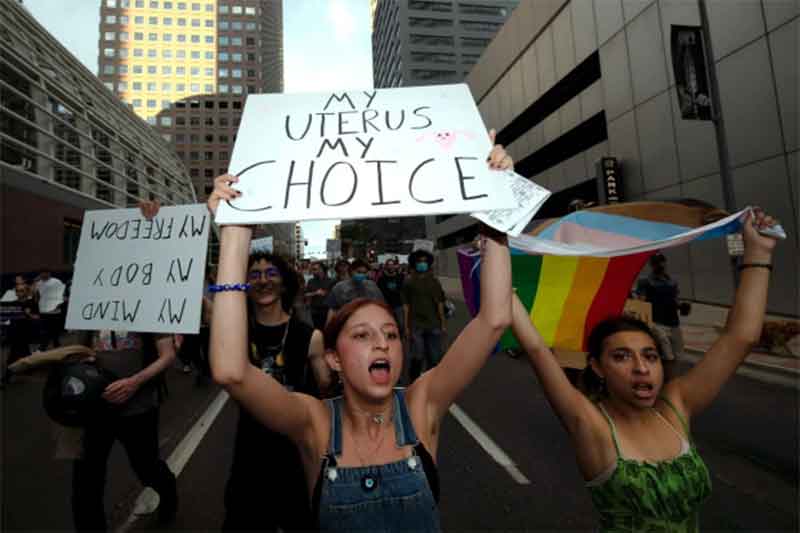
The US Supreme Court’s overturning of the Roe vs. Wade judgment which provided a constitutional right to abortion on June 24, 2022, triggered a spark of debates all over the globe. The altercations between advocates of abortion rights (preserving the right to patient choice and bodily autonomy) on one hand and the advocates of the anti-abortion movement (seeking to preserve the right to life of the fetus) on the other have been a source of divisive politics in the United States. This streamlines us to the question of how far the judiciary of India has been able to strike a balance between the right to bodily autonomy of women and the right to life of the fetus.
Traditionally abortion was seen as a stigma in Indian society, and a woman’s morality and ethics were questioned if she resorted to abortion. Termination of pregnancy was also criminalized under Section 312 of the Indian Penal Code, 1860. However, under the recommendations of the Shantilal Shah Committee, the Medical Termination of Pregnancy Act, 1971 (MTP Act) was enacted with the objectives of reducing of the death rate of women due to unsafe and illegal abortions and optimization of the maternal health of Indian women. The Medical Termination of Pregnancy (Amendment) Act, 2021 expanded the scope of the previous act to include rape and assault cases, incest survivors, married women, girls younger than 18 years, women with special needs, and women with foetal malformations among those eligible for abortion. The amendment also increased the legal window for abortion from 20 to 24 weeks under conditions that i) the continuance of the pregnancy would involve a risk to the life of the pregnant woman or of grave injury to her physical or mental health; or (ii) there is a substantial risk that if the child were born, it would suffer from any serious physical or mental abnormality. However, the MTP Act is also discriminatory as it excludes transgender women, the gender-queer and gender-nonconforming from within its purview thus making abortion services inaccessible to them.
In an ambiguous situation, as had not been addressed by the MTP Amendment Act, 2021, the Bombay HC passed a conditional order permitting a woman to medically terminate her 26 weeks (greater than the 24 weeks mentioned above clause) pregnancy only if the doctors confirmed that the baby may not be born alive after the procedure. The woman’s advocate Aditi Saxena had appealed to the court on grounds that the pregnancy was due to the failure of a contraception device or method. She pleaded that the court considered the anguish caused to the woman by such a pregnancy, referring to the section of the MTP Act on grave injury to the physical and mental health of pregnant women. Justices Sanjay Gangapurwala and R M Laddha on Friday 16, September 2022 said that “We understand the trauma that the petitioner, an unwed mother, would undergo. At the same time, it cannot be lost sight of an alive baby being born and the consequences it would have on the baby if it is prematurely terminated.” [Source: TOI, Oct 18, 2022]
The Supreme Court and the High Courts have time and again pronounced several verdicts sometimes in favor of the petitioners and sometimes not. The United Nations Population Fund (UNFPA)’s State of the World Population Report 2022 stated that about 67% of abortions in India are unsafe. It also said that eight women die each day due to unsafe abortions, which were the third most common cause of maternal mortality in the South-Asian nation. Thus, it is debatable whether the ‘conditional right’ approach to abortion under the MTP Act and the continued criminalization of abortion under Section 312 of IPC have in actuality helped India meet just halfway between the right to bodily autonomy and right to life.
Although the MTP Amendment 2021 has taken a step ahead in preserving the abortion rights of women but India still has a long way to go in terms of recognition of right to bodily autonomy. In my opinion, regulation of right to abortion by the state is itself an encroachment to right to privacy of women. The UNFPA recognises the right to bodily autonomy as a fundamental right. The laws like Section 312 of IPC and the MTP Act hinder a woman from making choices thus breaching her liberty. As concerning the right to life of the fetus, it is questionable what kind of a life a child undesired by the mother receives in the long run. A forced childbirth not only takes a toll upon the mental health of a mother but also upon that of her child in the future. Being forced to carry a pregnancy also burdens the mothers with high child care costs and thus, economic insecurity. Pregnancy discrimination in job sectors is yet another setback especially when the mother isn’t prepared for one. Besides women resorting to unsafe abortions due to fear of judiciary ultimately demonstrates the failure of the MTP Act. It is therefore, high time the Indian state probes into the devastating impacts of abortion laws on gender inequality and gender justice.
Preeti Saha is a postgraduate student at Presidency University, Kolkata.

















































